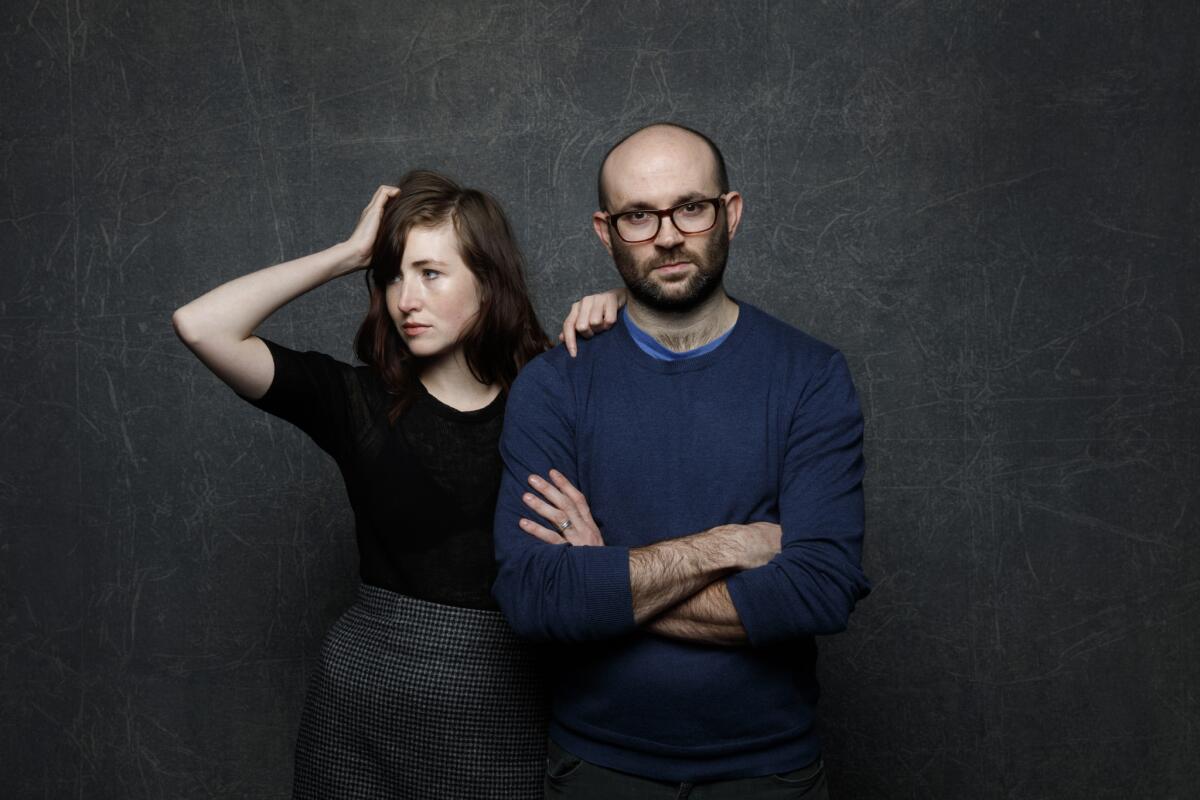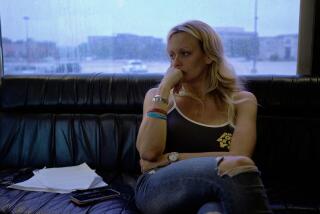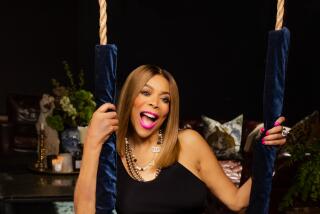Why documentarian Robert Greene was drawn to the real-life story about a Florida newscaster who killed herself on the air

Kate Lyn Sheil plays a pivotal part in Robert Greene’s new documentary film, “Kate Plays Christine.”
Robert Greene makes documentaries that turn themselves inside-out. Rather than straightforward storytelling, his films such as “Kati With an I,” “Fake It So Real” and “Actress” become explorations of the very idea of truth and reality on film, asking viewers to continually question what they are watching.
His latest movie, “Kate Plays Christine,” which recently debuted at the Sundance Film Festival, is a spellbinding investigation of fact, fiction, persona, performance and the act of watching. In the film, Greene follows actress Kate Lyn Sheil (“House of Cards”) as she researches a role as Christine Chubbuck, a Florida newscaster who committed suicide live on television in 1974.
SIGN UP for the free Indie Focus movies newsletter >>
Originally from North Carolina, Greene, 39, lived in New York City for many years but now teaches documentary filmmaking as part of the journalism school at the University of Missouri.
“Kate Plays Christine” is currently screening at the Berlin International Film Festival and will be shown at the upcoming True/False documentary festival. Greene sat for an interview during Sundance, just a few days before the film won a special jury award for writing.
Why Christine Chubbuck? What interested you about her story?
It’s a horrifying, sensational story that immediately makes you question what you even want to know about it. It’s the kind of thing where the moment you learn about the way she ended it and the things leading up to it, you immediately say, “Why do I want to know this? Why do I want to dig deeper?” There’s so many reasons that make you want to peel back the layers, but every layer you peel back, it feels more and more awful. This woman doing this thing for this reason brings up all these questions that I can’t shake.
How much does it matter whether people consider your movies documentaries or fiction films? What do you think of the term “hybrid”?
I don’t like that term. Two or three reasons why. One, if the goal of making innovative documentary art cinema is to change the way audiences look at the form, it’s just another term that pushes audiences away. Hybrid sounds academic. Beyond that, it may be reductive to say, but every documentary is a hybrid, from the beginning of cinema. The first movies were hybrids, the Lumière brothers’ films were hybrid, partly staged, partly acted out. This is a foundational idea that you mix documentary and staged material.
Having said all that, I cling to nonfiction because to me, the real question is, “Is there some unbreakable tether to the real world?” For me, nonfiction is a different thing — you can stage, you can cajole, you can fabricate, whatever, but there still has to be some sort of unbreakable connection to what you’re actually recording. It has some sort of value in reality, some connection you can’t break.
Were you interested in making a film that further explored the relationship of performance and documentary from your previous movie “Actress” before you came to the Christine Chubbuck story?
I never could imagine making a straightforward version of the story. When you try to pin it down, it’s almost like a quantum particle — it jumps away. I didn’t want to make a story about a sad woman who killed herself on TV. “Actress” was the opening for me. Working with an actor, I was able to see not only does it create layers of meaning when you’re putting an actor in a nonfiction setting ... but if framed correctly, it would be an in to what’s going on with Christine Chubbuck. Through Kate’s investigation, her thinking, we could try to understand the motivation, or at least we could try to understand better.
There is also a fiction feature at Sundance about Christine Chubbuck, and you noted in a Q&A after a screening that both you and Antonio Campos, the director of that film, “Christine,” have been asked about each other’s films at every screening. What do you make of two unrelated films on the same story from 1974 being made now?
I think she was a severely depressed woman with emotional problems who was incredibly lonely. She was ambitious, she was angry, she chose to do this as a spectacular statement. She wanted it to be seen, and she wanted it to spark conversations. I’m surprised it took so long for a film to be made. But the thing that happens when you get closer to her story is it takes on this feeling of mythic meaning. And I’m uncomfortable with that, because in the end, we’re talking about a depressed woman who killed herself. If that makes people think about suicide, the way we watch images, depression as a thing that is not easily explainable, that’s great, but other than that, I don’t want to say we’re in some kind of Christine Chubbuck moment.
Do you see your work and its exploration of the intersections of fact and fiction as having some kind of relationship to reality TV?
You have to be aware of the era in which you’re making films, and this is a reality-TV-dominated era. I think that most viewers that watch “The Bachelor” get into the reality of it but also know it’s being manipulated. Reality TV, I think, has helped people understand the language of nonfiction in a more educated way, where they can think about it being staged and think about it being real at the same time. And to advance the notion that awareness doesn’t take away from the experience but adds to the experience. To me, that’s a platform on which I can make interesting art cinema.
Twitter: @IndieFocus
Get more entertainment news on Facebook
More to Read
Only good movies
Get the Indie Focus newsletter, Mark Olsen's weekly guide to the world of cinema.
You may occasionally receive promotional content from the Los Angeles Times.







